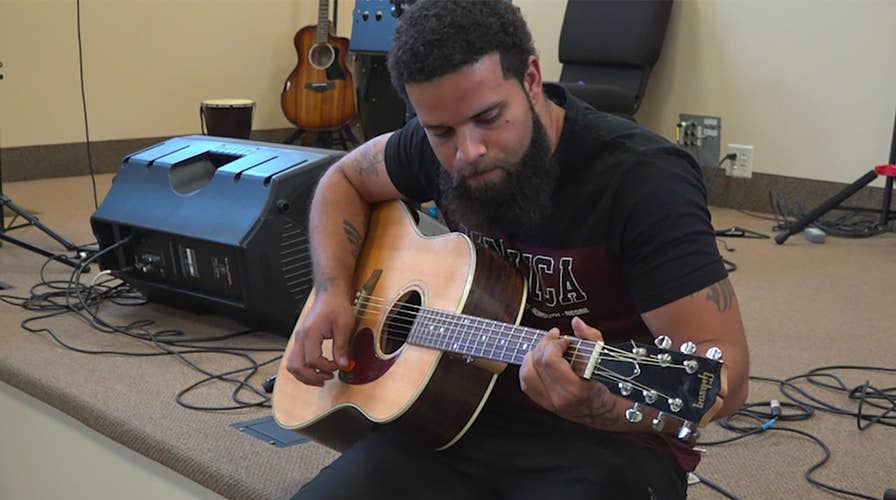Delaware’s Senate approves bill to tax opioids
Individuals suffering from addiction may be getting some unexpected help from pharmaceutical companies
WILMINGTON, Del. – Drug manufacturers that sell opioid painkillers in Delaware may be paying an additional tax in the near future.
Lawmakers are hoping a bill introduced earlier this month will help support the growing need for substance abuse prevention and treatment services in the state.

FILE - This Aug. 29, 2018, file photo shows an arrangement of prescription oxycodone pills in New York. U.S. health officials Tuesday, April 9. 2019, warned doctors not to abruptly stop prescribing opioid painkillers to patients who are taking them for chronic pain ailments, such as backaches. (AP Photo/Mark Lennihan, File)
The state Senate bill passed 17-4, and will now move to the House for a vote.
The legislation will impose a per-pill tax on prescription opioids, ranging from a few cents to a couple of dollars, based on its strength and whether it's brand-name or generic. The tax would consist of one cent for every morphine milligram equivalent, or MME, of any brand-name opioid dispensed in Delaware, and one-quarter of a cent for every MME of a generic opioid.
Supporters of the bill say the average consumer should not see an increase in their pain medication because the small levy will be either paid by drug manufactures or absorbed by wholesalers, retailers, and distributors.
“This is an impact fee,” said chief sponsor Sen. Stephanie Hansen, D-Middletown. “What this says is if you bring something dangerous into our communities, then you have to step up and help [the] government clean it up.”
Delaware ranks as having the fifth most overdoses in the country per capita. Officials are estimating the tax would raise about $8 million over three years.
GOV. CUOMO'S PROPOSED PRESCRIPTION OPIOID SURCHARGE UNDER FIRE, CRITICS CALL IT TAX ON PAIN
At least 14 other states have introduced similar legislation. New York is the only state that passed such a measure, although opioid manufacturers are currently challenging the legality and limitations of the new law.
“People are going through two-week rehabilitation programs several times. It's not working because they don’t have enough money for the long-term residential programs that are needed,” said Hansen.
For Joseph Dunn, 26, a counselor at Delmarva Teen Challenge Rehabilitation Center, the proposal is personal.
“This program and the grace of God helped deliver me,” said Dunn, “I don’t take the medication anymore, and now there is joy and happiness where pain once was.”

Joseph Dunn, 26, is a survivor of opioid addiction and support of the Delaware proposal. (Fox News/ (Talia Kirkland))
Delmarva Teen Challenge is a faith-based rehabilitation center for boys and men who have been affected by issues like anger, depression, drug and alcohol abuse, and other life-controlling problems.
Dunn, who says he's a survivor of verbal and physical abuse at the hands of his father, spent much of his teen years battling depression and opioid addiction.
KENTUCKY PUSHES FIRST-IN-NATION OPIOID TAX
“The pills were so readily available, all I had to do was ask and someone knew where to get them,” he said.
He now credits his one-year-residential stay at the Delmarva Center for his sobriety.
But he said not everyone is as fortunate.
“Step up and provide some funds for the government who has to pour millions of dollars into combating this crisis,” Hansen said.
Hansen and other bill co-sponsors are demanding drug companies take responsibility for the role they have played in the widespread issue.
Dr. Daniel Bober, a board-certified psychiatrist, and mental health and patient advocate supports the bill and said the opioid crisis began with irresponsible drug manufactures and negligent doctors.
“There is a precedent for this [tax] and I think it can have a positive effect on funding treatment and getting people to reduce or eliminate their usage.”
Last year, California, Delaware, Iowa, Kentucky, Maine, Massachusetts, Montana, New Jersey, Tennessee, and Vermont all considered or began drafting legislation to pass a tax on opioids.
But critics of the proposal urge lawmakers to reconsider.
“Any type of tax will end up burdening people who have nothing to do with the problem,” said Pete Sepp.
The National Taxpayers Union (NTU) said lawmakers must consider both the intended and unintended fiscal consequences of the legislation before it is enacted into law.
CLICK HERE TO GET THE FOX NEWS APP
“Any type of tax will end up burdening people who have nothing to do with the problem,” said NTU President Pete Sepp.
The Pharmaceutical Research and Manufacturers of America, PhRMA, which represents the country's leading biopharmaceutical researchers, said the opioid crisis must be approached holistically.
“Unfortunately, what’s being proposed—taxing legitimately prescribed medicines that patients rely on for legitimate medical needs to raise revenues for the state—ignores evidence-based solutions, sets a dangerous precedent and, ultimately, won’t help patients and families.”
Lawmakers in favor of the bill insist that the small levy would be used to increase the kind of drug rehabilitation Dunn believes saved his life.
“I’d like to become a minister someday," Dunn said. "I love to talk about the goodness of what Jesus has done.”










































